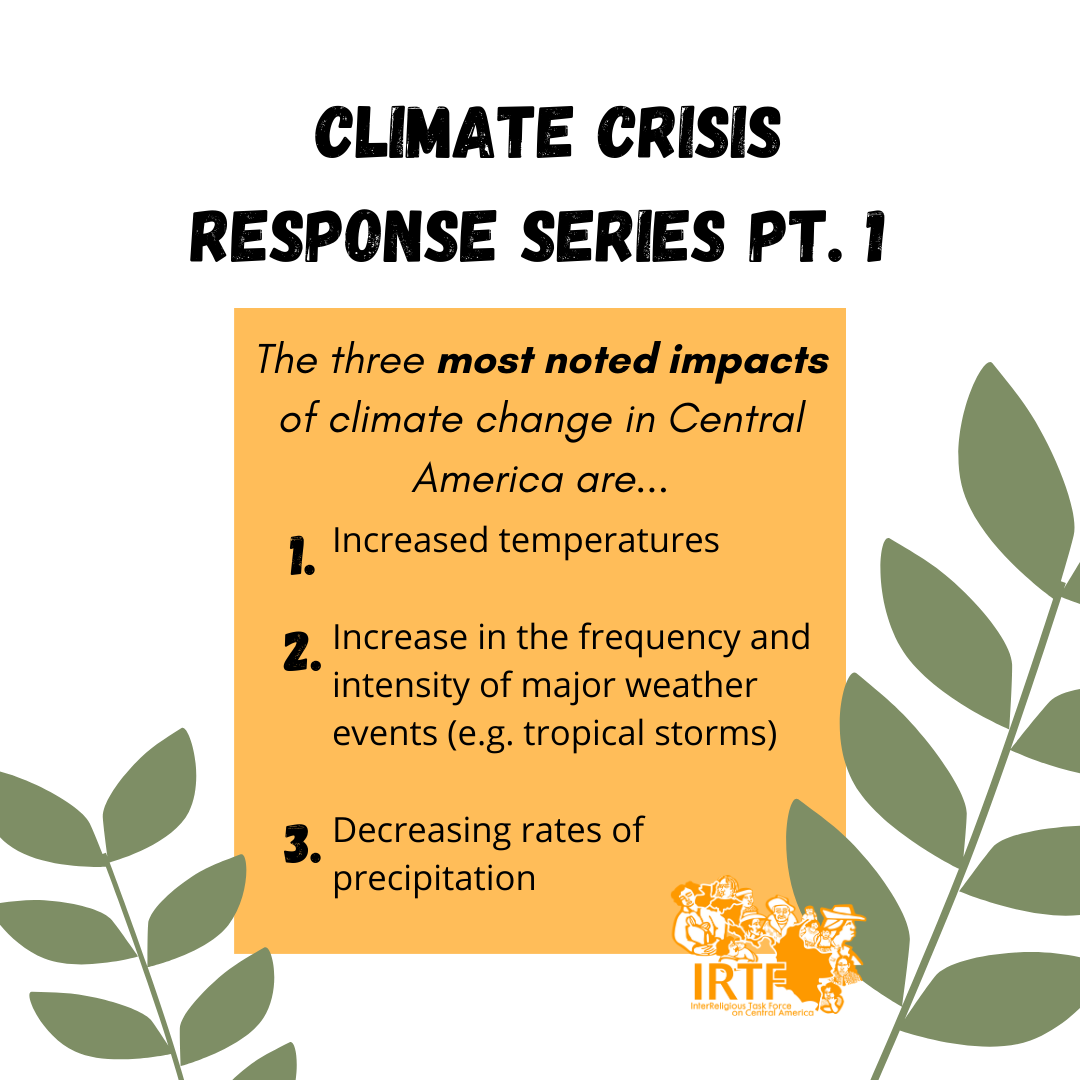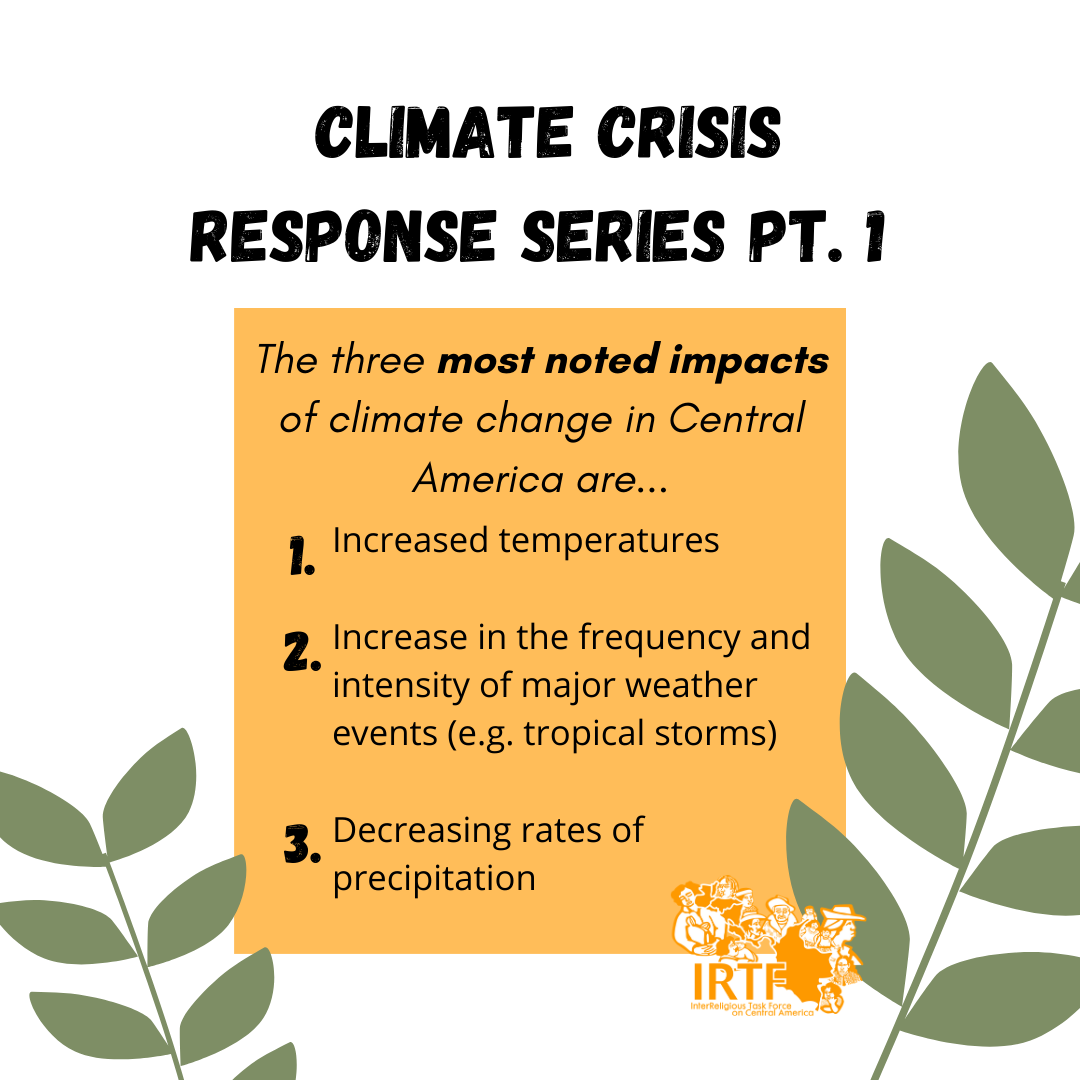- Home
- About Us
- Issues
- Countries
- Rapid Response Network
- Young Adults
- Get Involved
- Calendar
- Donate
- Blog
You are here
Mexico: News & Updates
Mexico shares a 2,000-mile border with its neighbor to the north. The US has played a significant role in militarizing the nation in misguided and ineffective policies to stop the flow of drugs and immigrants. Human rights abuses are prevalent throughout Mexico but especially in the southern, mostly indigenous states of Guerrero, Oaxaca and Chiapas. Human rights defenders and indigenous community leaders—working to protect their ancestral lands and heritage—are targeted with threats, assaults, abductions and assassinations. Their struggles for peace and liberation are linked with those of indigenous and Afro-descendant peoples throughout the hemisphere.
Learn more here.
News Article
September 2, 2020
We have already emitted enough greenhouse gases (GHGs), such as CO2, to change the very composition of our atmosphere. Scientists, researchers, policymakers, and governmental officials alike know this; they know that the effects of climate change are occurring now and will continue into the not-so-distant future. We now face the question: will we act now to limit the consequences of climate change by reducing emissions or continue with the status quo and suffer the consequences?
Content Page
September 1, 2020
In this series of infographics we explore the ways in which the climate crisis is impacting Central Americans and Colombians, how they are adapting, and how this crisis has created a surge of climate migration.
News Article
August 12, 2020
Although the effects of climate change reverberate around the globe, its effects vary from region to region, continent to continent, and Central America is no exception. // Aunque los efectos del cambio climático repercuten en todo el mundo, sus efectos varían de una región a otra y de un continente a otro, y Centroamérica no es una excepción.
RRN Letter
July 31, 2020
The arrest and criminalization of indigenous and environmental rights defenders is part of a strategy of intimidation and violence against them. Fredy García is one victim of this violent strategy in Oaxaca, Mexico. Fredy García is the spokesperson for the Committee for the Defense of Indigenous Peoples (CODEDI). He has been in Tanivet prison in Oaxaca since November of 2019 on fabricated charges of “assault,” “injuries” and “aggravated robbery.” On July 10, prison guards severely beat Fredy García, saying that they were acting on “orders from above.” On July 12 he was transferred to a cell in a different block where his use of the telephone is severely restricted, and he is forced to work outdoors in areas with very little shade. When his wife came to visit, she was told by prison authorities that Fredy García was placed in a punishment zone of the prison. During a restricted 20-minute visit, she saw his injuries, including several bruises and a blood spill in his left eye. We are urging authorities in Oaxaca to: 1) conduct a thorough and impartial investigation into the harsh treatment of Fredy García, publish the results, and bring the perpetrators to justice , and 2) take all necessary measures to guarantee the physical and psychological integrity of Fredy Garcia, in accordance with international standards (United Nations’ Set of Principles for the Protection of All Persons Under Any Form of Detention or Prison, 1988)
RRN Case Update
July 1, 2020
April, May and June RRN case summaries at a glance
On behalf of our 190 Rapid Response Network members, IRTF volunteers write and send six letters each month to government officials in southern Mexico, Colombia, and Central America (with copies to officials in the US).
Who is being targeted? indigenous and Afro-descendant leaders, labor organizers, LGBTI rights defenders, women’s rights defenders, journalists, environmental defenders, campesinos, and others.
Event
April 15, 2020
Equal Exchange has continued to create spaces for us to connect as a community and to take action as an alternative network. We will continue to provide spaces for connection and brainstorm ways to build an independent food system. One meaningful way that we want to engage with you is to continue to invite you into our world by sharing the stories of our producer partners as much as we can.
News Article
February 26, 2020
In 2010 Mesa, an on-duty U.S. Border Patrol agent who was at the border in El Paso, Texas, shot Hernández at least twice — once in the face. At the time, the boy, a Mexican national, was on the southern side of the border in Ciudad Juarez. What is in question, and at the core of a legal dispute the U.S. Supreme Court has been trying to resolve for nearly three years, is whether Hernández's parents, who are also Mexican nationals, have a legal standing to sue Mesa for damages in the killing that occurred outside of U.S. territory. On Tuesday the court delivered its decision: The Hernández family cannot sue.
News Article
February 24, 2020
YOUNGSTOWN, Ohio — A man from Mexico in government custody and awaiting deportation died by apparent suicide in an Ohio prison, U.S. immigration authorities said Friday. David Hernandez Colula, 34, was being held at the Northeast Ohio Correctional Center in Youngstown during pending deportation proceedings, U.S. Immigration and Customs Enforcement said. Colula died at a hospital early Thursday after prison staff found him unresponsive in his cell. Colula apparently died by suicide but the case is under investigation, authorities said. Colula was transferred to the Ohio prison following his arrest in Michigan in December for an outstanding warrant.
Event
February 21, 2020
Tigers Are Not Afraid tells a very current story, especially given how much the drug war on the border of Mexico and the state of immigration dominates our political discourse. Filmmaker Issa López opens by reminding us how many people have been murdered and disappeared in Mexico since 2006, when the drug war intensified and riddled the air with violence to such a degree that there are entire cities that have become ghost towns. Our story is set in one of these cities, where children have been orphaned by the violence that surrounds them, forming a sort of “lost boys” group of their own on a rooftop. López merges the horrors of real life with fairy tale structures and storytelling in a way that’s ambitious and consistently fascinating. [Summary taken from film review by Brian Tallerico, 8/23/29]
RRN Case Update
February 13, 2020
RRN case summaries at a glance
On behalf of our 190 Rapid Response Network members, IRTF volunteers write and send six letters each month to government officials in southern Mexico, Colombia, and Central America (with copies to officials in the US).
Who is being targeted? indigenous and Afro-descendant leaders, labor organizers, LGBTI rights defenders, women’s rights defenders, journalists, environmental defenders, and others.
By signing our names to these crucial letters, human rights crimes are brought to light, perpetrators are brought to justice and lives are spared. Our solidarity is more important than ever. Together, our voices do make a difference.





